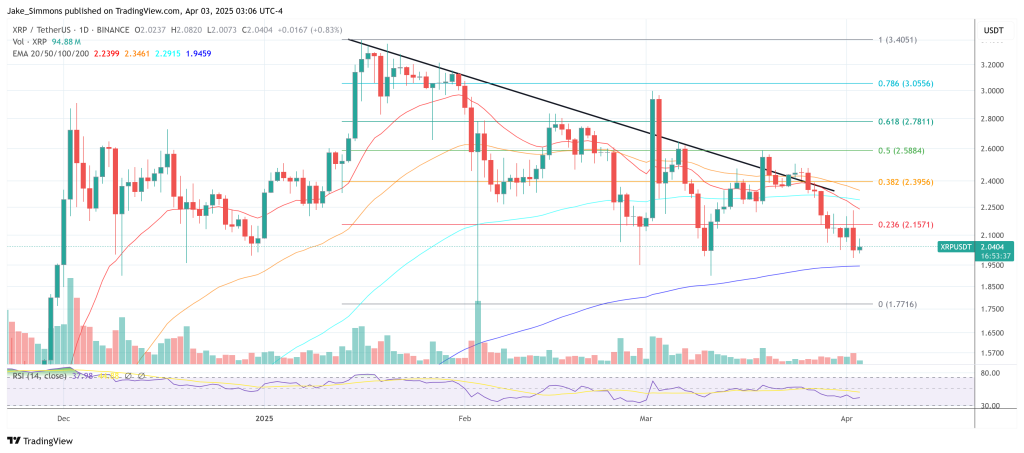Major merchants and businesses are now accepting digital currencies as a genuine payment option, demonstrating how quickly cryptocurrencies have acquired recognition as a payment mechanism. This change will have a big impact on how business will operate in the future and how widely cryptocurrency will be used.
This article examines the effects of big businesses and stores accepting cryptocurrencies more and more. We can better comprehend how cryptocurrencies are changing the traditional payment landscape by looking at the advantages, difficulties, and potential repercussions of this development.
The Acceptance of Cryptocurrencies Is Growing
Major merchants and businesses have dramatically increased their use of cryptocurrency as a payment mechanism in recent years. This rising tendency is attributed to a number of factors:
- Customer Base Expansion: By accepting cryptocurrencies, businesses can reach a new market of tech-savvy customers and cryptocurrency aficionados. Retailers and businesses may draw in and serve this niche market by providing cryptocurrency payment choices.
- Cryptocurrencies enable cross-border transactions without the use of intermediaries or currency conversions because of their global reach and borderless nature. With the help of this benefit, firms can broaden their client base and simplify cross-border transactions.
- Lower Transaction Fees: When compared to more established payment options like credit cards, cryptocurrency transactions frequently have lower transaction fees. Businesses can cut processing costs by accepting cryptocurrency, particularly for high-value transactions.
- Greater Security and Privacy: Compared to conventional payment systems, cryptocurrencies offer greater security and privacy thanks to their use of strong encryption and decentralized technologies. This may allay worries about fraud and data breaches and increase customer confidence.
Advantages for Businesses and Retailers
Retailers and businesses profit from cryptocurrency' expanding acceptability in a number of ways:
- Sales and revenue growth: By providing bitcoin payment options, you can draw in new clients who favor digital currencies. In addition, businesses may access worldwide markets thanks to cryptocurrencies' widespread use, growing their clientele and creating new revenue streams.
- Faster Transactions: By enabling almost immediate transactions, cryptocurrency payments do away with the delays sometimes associated with conventional payment systems. This effectiveness can improve customer happiness and loyalty by enhancing the total customer experience.
- Reduced Fraud and Chargebacks: Because cryptocurrencies use immutable blockchain technology, the risk of fraud and chargebacks is substantially lower. Businesses can save money and time by avoiding the expenses and administrative hassle of handling and resolving fraudulent transactions.
- Retailers and businesses who accept cryptocurrency are seen as innovative and forward-thinking, which helps them stand out from the competition. Tech-savvy customers looking for cutting-edge and current shopping experiences are drawn to them since it distinguishes them from rivals and strengthens their brand image.
Challenges and Things to Think About
Although accepting cryptocurrency has many advantages, it is not without difficulties. Think about the following elements:
- Price Volatility: The price volatility of cryptocurrencies is well-known and can be problematic for businesses. Businesses that accept cryptocurrencies must carefully manage their exposure to market volatility and take precautions to reduce risks, such as considering quick conversion to fiat currency.
- Environment of Regulation: The regulatory framework for cryptocurrencies differs across nations and is continually developing. In particular, Know Your Customer (KYC) and Anti-Money Laundering (AML) legislation force retailers and businesses to manage legal requirements and assure compliance.
- Technology Infrastructure: The right technology infrastructure is needed to integrate bitcoin payment systems. To ensure smooth transactions, retailers and businesses need to invest in dependable payment gateways, backend infrastructure, and secure cryptocurrency wallets.
- Customer Education and Support: Since the use of cryptocurrencies is still in its early stages, many customers might not be familiar with how to make payments using them. Customers need to be informed about bitcoin payments, and businesses need to offer specialized support for any questions or concerns.
Future Payments Using Cryptocurrencies
The future of cryptocurrency payments is bright as big businesses and merchants continue to accept cryptocurrencies as a form of payment. The following are some potential results and patterns to look out for:
- More widespread usage is probably to come as a result of the increasing acceptance of cryptocurrencies by big enterprises and merchants. Customers will have more opportunity to use virtual currencies in regular transactions as more companies start to accept them.
- Interaction with Traditional Payment Systems: There may be more interaction between cryptocurrency payment systems and conventional payment infrastructure in the future to enable seamless transactions. Customers might be able to utilize cryptocurrencies in addition to fiat currencies as a result, making payments more flexible and convenient.
- Stablecoin Integration: Stablecoins, or digital currencies backed by stable assets like fiat money, may have a big impact on how widely people accept cryptocurrencies. Because stablecoins have stable prices, they are better suited for regular transactions. Stablecoin integration into payment systems may help to close the divide between conventional and digital currencies.
- Collaboration with Payment Service firms: Payment service firms have already begun to handle bitcoin transactions, including PayPal and Square. Additional cooperation between these service providers and significant merchants or businesses could speed up the acceptance of cryptocurrencies and increase their usability by a larger user base.
- Central Bank Digital Currencies (CBDCs): As central banks investigate the creation of CBDCs, their integration with current payment infrastructure may open the door to frictionless exchanges between cryptocurrencies and fiat money.
- Regulatory Clarity: Cryptocurrency regulatory frameworks are continuously developing. By encouraging governments and regulatory agencies to give clearer norms and restrictions, increased acceptance by big merchants and businesses may help to increase public confidence in bitcoin payments.
Embracing CBDCs: Mitigating Volatility Risks for Merchants
The rise of cryptocurrencies has brought exciting possibilities for digital transactions, but their inherent volatility poses significant challenges for merchants. To address this issue, merchants should consider supporting Central Bank Digital Currencies (CBDCs) as a more stable and reliable form of digital payment.
Stability and Reduced Volatility:
Cryptocurrencies are known for their price volatility, which presents risks for merchants. CBDCs, on the other hand, are backed by central banks and maintain a stable value tied to the national currency. By accepting CBDCs, merchants can avoid the uncertainties associated with crypto's price fluctuations. This stability allows for more accurate pricing, eliminates the need for frequent price adjustments, and provides a consistent value for goods and services.
Trust and Regulatory Compliance:
Cryptocurrencies operate outside traditional financial systems and lack regulatory oversight, raising concerns about security, money laundering, and illicit activities. However, CBDCs are issued and regulated by central banks, offering a level of trust and compliance with existing financial regulations. Merchants can benefit from this trust factor by accepting CBDCs, as it reassures customers that their transactions are backed by reputable financial institutions, reducing fraud risks and ensuring compliance with Know Your Customer (KYC) and Anti-Money Laundering (AML) regulations.
Ease of Use and Interoperability:
Cryptocurrencies often require additional steps for users to convert them into traditional currencies, making the payment process cumbersome. On the other hand, CBDCs can seamlessly integrate with existing payment infrastructures, providing a familiar and convenient payment experience for both merchants and customers. CBDCs can be easily used through mobile wallets, payment apps, or even contactless payment cards, streamlining the transaction process and encouraging wider adoption among merchants and consumers.
Cost-Effectiveness and Transaction Efficiency:
Cryptocurrency transactions can be associated with high transaction fees and lengthy settlement times, leading to financial burdens and operational inefficiencies for merchants. CBDCs, designed with efficiency in mind, offer cost-effective and swift transactions. Merchants can benefit from reduced transaction costs and faster settlement times, enabling more streamlined cash flow management, quicker reconciliation, and improved overall financial operations.
Consumer Adoption and Market Expansion:
Cryptocurrencies are still relatively niche and may have limited adoption among consumers due to their volatility and complexity. By embracing CBDCs, merchants align themselves with widely recognized and accepted payment instruments, enhancing consumer confidence and encouraging broader adoption of digital payments. CBDCs have the potential to bring new customers into the digital payment ecosystem, expanding the market for merchants and driving overall economic growth.
Conclusion
Major merchants and businesses are increasingly accepting cryptocurrency as a form of payment, signaling a big change from the past. Cryptocurrencies are a desirable option for businesses due to the advantages of higher sales, quicker transactions, decreased fraud, and improved innovation. But, there are issues that must be resolved, including price volatility, regulatory issues, and the requirement for a strong technology foundation. Future prospects for cryptocurrencies include widespread adoption, integration with established payment systems, and the creation of stablecoins and CBDCs as they continue to gain recognition. Businesses and consumers may anticipate more flexible, safe, and convenient payment choices as the bitcoin payment ecosystem develops.
This article was written by Finance Magnates Staff at www.financemagnates.com.
You can get bonuses upto $100 FREE BONUS when you:
💰 Install these recommended apps:
💲 SocialGood - 100% Crypto Back on Everyday Shopping
💲 xPortal - The DeFi For The Next Billion
💲 CryptoTab Browser - Lightweight, fast, and ready to mine!
💰 Register on these recommended exchanges:
🟡 Binance🟡 Bitfinex🟡 Bitmart🟡 Bittrex🟡 Bitget
🟡 CoinEx🟡 Crypto.com🟡 Gate.io🟡 Huobi🟡 Kucoin.



















Comments